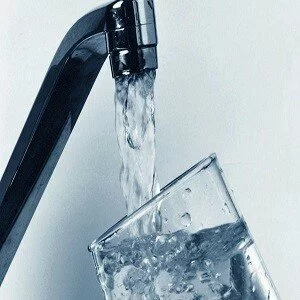Water makes up about 50 to 70 percent of the total body weight, in the average adult it is about 70 percent but this reduces with age, in the average elderly person it is about 50 percent. The muscular person has more water in his body than a fat person as muscles contain more water.
Water is not stored in our body; consequently the average person can survive without food for about two months but can only survive without water for a few days. Loss of about 20 percent of body water may cause death while 10 percent loss could cause severe illness.
Water is one of the six nutrients required by our body; the others are carbohydrate, protein, fat, vitamins and minerals.
Water gets into our body through direct intake of water, from foods we eat and from certain activities which take place in the body.
Fruits and vegetables are made up of 85-95 percent water. Foods like potatoes are about 75 percent water.
We lose about 10 cups (2500mls) of water daily from our body through sweating, breathing, urine and stool. We must therefore replace this amount through fluid ( water, juice, soft drinks, tea, coffee, beer etc) intake and food.
We must take between 1000mls and 3000mls of fluids daily to ensure our body is not short of water. On the average about 2500mls of fluids is adequate.
1. Regulation of body temperature
Water helps to regulate our body temperature so that our body temperature remains within normal range. When our body get hot inside, we sweat and when this sweat dries off, our body heat reduces. Without water in our body we won’t sweat and therefore regulation of our body temperature more difficult.
2. Removal of waste products.
Our body generates waste products every day; this is removed from the body by the kidneys with the use of water. The waste comes out in the form of urine, hence when we have little water in our body, we produce very little urine. If so much water is lost, we cannot even make any urine.
Water is also needed to soften feaces in the intestines; otherwise it may be difficult to pass out stool.
3. Necessary for digestion and absorption of food.
Water is necessary for the breakdown of food in the stomach; it is also necessary for the absorption of the digested food in the intestines.
4. Necessary for free movement of joints.
For joints to move freely, there must be fluid in the joint, this fluid is mainly water and it is able to do this because water cannot be compressed. When a joint has less fluid then it cannot move normally. Fluid in joint reduces with age, hence the stiffness.
5. Transportation of nutrients in the body.
Water is responsible for the movement of nutrients to all parts of the body; glucose, protein, fat, vitamins and minerals.
6. Necessary for formation of body fluids
Water is the main constituent of several body fluids—saliva, tears, blood, fluid around the baby in the pregnant woman and other more complicated body fluids.








No Comments